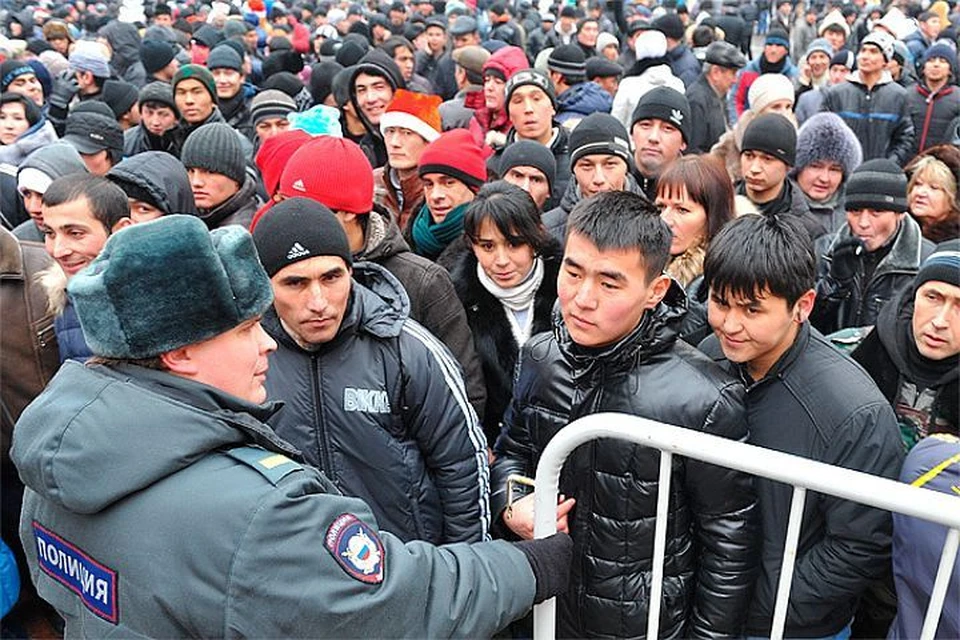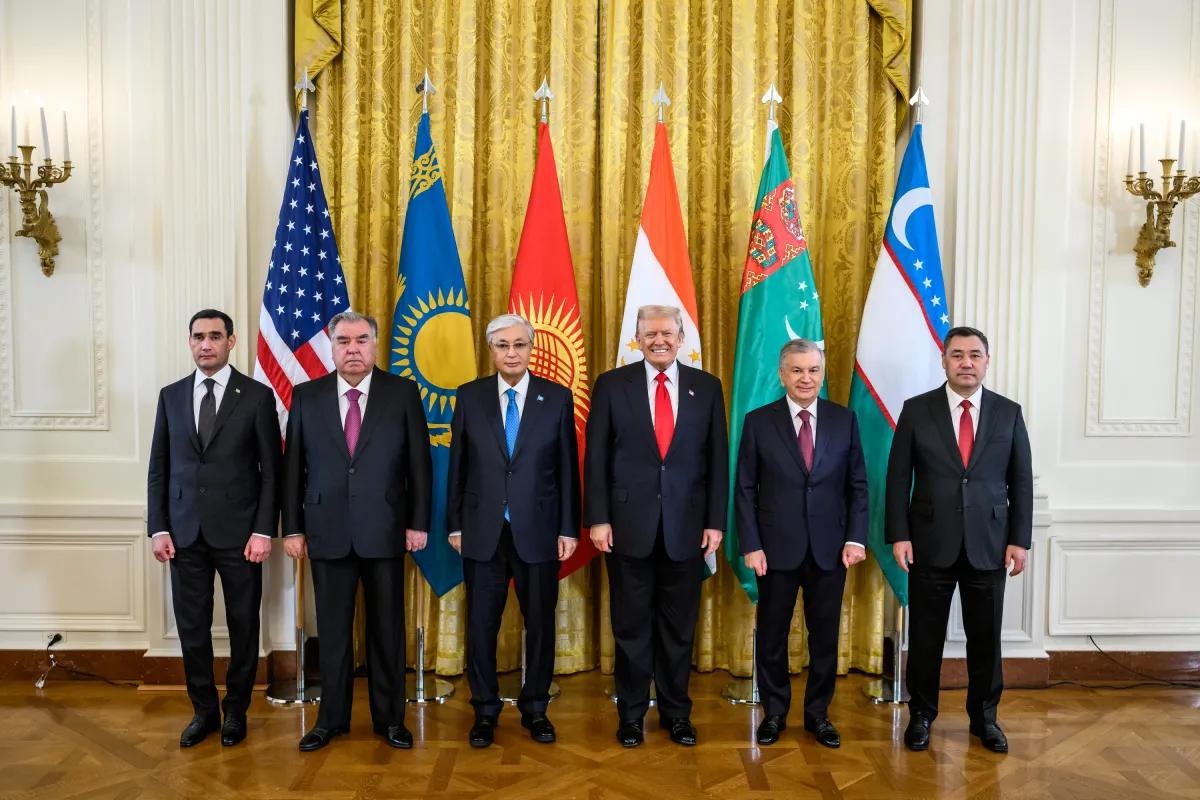
Xenophobia and Harassment of Central Asian Migrants on the Rise in Russia
Xenophobia and Harassment of Central Asian Migrants on the Rise in Russia
Executive Summary:
- The Crocus City Hall terrorist attack has led to a rise in Russian xenophobia against Central Asians and a strong crackdown on Central Asian migrants from the Kremlin.
- Labor migrants from Central Asia make up a majority of Russia’s migrant labor market, and inaction against the growing harassment and xenophobia will not go unnoticed by Central Asian governments.
- Russia currently has poor relations with many countries, and alienating its neighbors in Central Asia is not in Moscow’s best interest.
In the aftermath of the Crocus City Hall terrorist attacks, the Russian government has responded with a sweeping crackdown on Central Asian migrants (see EDM, March 26, 28, May 9; see Terrorism Monitor, May 6). Labor migrants from Central Asia are subject to lengthy checks before being allowed into the country or turned away upon being found ineligible. The Kyrgyz Deputy Minister of Foreign Affairs has stated that immigration officers decided to deny the entry of these migrants because they looked “suspicious” or their phones had “suspicious content.” Those already residing within Russia face heightened scrutiny and surveillance (see EDM, February 14). The scale of these actions has not escaped the attention of politicians in Central Asian countries and the families of migrants, who are undoubtedly concerned about the changes in treatment. Russia is not in a position to lose any more allies, and if they continue to allow the harassment of Central Asian migrants, Moscow runs the risk of alienating the region.
Central Asian migrants are experiencing harsh treatment despite Russian President Vladimir Putin’s statement that the terrorist attacks in Crocus City should not “provoke a rise in xenophobia and Islamophobia” (Izvestiya, April 2). Putin’s message, more directed at nationalistic groups and law enforcement, indicates his concerns about avoiding large-scale overt disturbances based on race, likely because of his concern that the situation could quickly escalate out of control.
Russian Foreign Minister Sergei Lavrov attempted to downplay Russian nationalism in the treatment of migrants. He described the situation on the border as “temporary” and emphasized “that the measures taken are not directed against a specific nation or religion.” His counterpart from Tajikistan, Sirojiddin Muhriddin, however, countered Lavrov’s statement, asserting that citizens of Tajikistan were specifically targeted. He emphasized that the negative treatment against Tajik citizens and the violation of their rights do not “correspond with the principles of bilateral relations” (Tajikistan Ministry of Foreign Affairs; Russia Ministry of Foreign Affairs, April 30).
The subdued statements from Russia’s top officials can be interpreted in three different ways, despite the contrasting realities on the ground. First, these statements may be intended to emphasize the government’s official stance on ensuring the country’s security while investigations into the events are ongoing. Second, they could be a message directed at the ethnic Russian population, signaling a desire to avoid escalating the situation and prevent domestic disturbances between migrants or non-ethnically Russian citizens and local populations. Third, the statements might suggest that Moscow is not prepared for a further deterioration in relations with Central Asian countries. This could indicate that the Russian government is not currently planning to take drastic measures, such as instituting visas or turning away all migrants, to limit migration from these countries.
Tajik citizens are bearing the brunt of these actions. In response to reports of the torture of the Tajiks detained following the terrorist attack, Tajik Foreign Minister Sirojiddin Muhriddin issued a strong statement condemning the “detention of alleged perpetrators of a terrorist act with the use of torture against them.” He emphasized that such methods will not serve the purpose of identifying those responsible (AsiaPlustj.info, April 12).
Central Asians are not strangers to xenophobia in Russia. Harassment and mistreatment by junior law enforcement officials against Central Asia migrants is widespread (see EDM, August 5, 2013 [1], [2], March 5, 2014, September 9, 2015, May 19, 2016, October 5, 2023, February 14, May 9; see Commentaries, October 14, 2018). Russian officials constantly abuse their power when dealing with labor migrants, and Russian police are notorious for extorting them. Perhaps most troubling is the extent to which these negative attitudes have been amplified and overtly directed at migrants following the Crocus City attack.
Kyrgyz officials have been particularly blunt compared to other Central Asian countries when describing the treatment of their citizens by Russian law enforcement officials. Some Kyrgyz lawmakers recently raised concerns that their citizens were facing difficulties entering Russia due to xenophobia and increased mistreatment by law enforcement bodies. For example, Kyrgyz Deputy Minister of Foreign Affairs Almaz Imangaziev noted that after the Crocus City Hall terrorist attack, 69 Kyrgyz citizens were barred from entering Russia for various reasons, some of whom were only visiting Russia for the first time (Centralasian.org, April 3).
The attitude of law enforcement agencies toward migrants in Russia reminds Central Asian politicians of their powerlessness in addressing the mistreatment of migrants from their countries. Given Russia’s position as the more powerful partner in the region, Central Asian countries find themselves constrained in what they can do and say publicly. Consequently, Central Asian states have limited their response to merely urging their citizens to stop traveling to Russia unless absolutely necessary (Centralasian.org, May 2, 3).
The Kremlin should recognize rationally that its current approach is unsustainable due to the Russian labor market’s dependence on foreign workers, especially from Central Asia (see EDM, November 8, 2022, February 16, 2023, October 31, 2023, February 6). These migrants represent a significant majority of Russia’s foreign labor market, and Russian employers and businesses rely heavily on their contributions (Center of Strategic Development, 2018; The Moscow Times, March 26). With Russia facing a demographic decline and an increasingly stable ruble due in no small part to its war against Ukraine, a cheap migrant force is essential for the countries to continue to function. Moreover, Russia currently has poor relations with many countries, and alienating its neighbors is not in Moscow’s best interest (see EDM, August 2, 2016, November 15, 2022, May 24, 2023, February 14).
The Russian government is attempting to make the entrance of migrants as difficult as possible, possibly signaling to the domestic population that they are taking action in response to recent events. These measures, however, lack a legal basis and instead clearly demonstrate the government’s assertion of power. Russia’s actions also aim to reinforce the perception that it is actively safeguarding its society from perceived threats to the labor market and social stability.
In the aftermath of the Crocus City Hall attack, Central Asian politicians are witnessing Moscow’s deceit first hand, emphasizing that there is often a stark contrast between Russian politicians’ rhetoric and their actual actions. The Kremlin’s invasion of Ukraine marked the first time since 1991 that Central Asians experienced Russia’s willingness to wage a full-scale war against a country that deviates from Moscow’s desired course. Now, the Kremlin is adopting a similarly aggressive and large-scale approach toward its labor migrants. As a result, Central Asians are witnessing a resurgence of xenophobia, which manifested through routine document checks by junior-level police officers in the past. Today, this has evolved into a national movement with potentially far-reaching implications.


